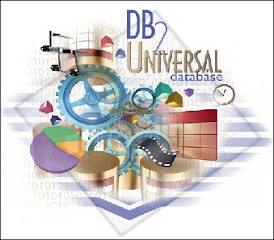This month marks the 30th anniversary of Db2 on IBM i and its predecessor platforms – iSeries & AS/400. Those of you who follow the platform closely might think that my mathematic skills are lacking since IBM i celebrated its 35th anniversary last year in 2023. Obviously, that’s a gap of 5 years.
Does
that mean there wasn’t a database the first 5 years of the platform? Clearly
not since the integrated relational database was one the AS/400 hallmarks.
However, that integrated database had no official name. Those newer to the IBM
i platform, including some of our younger developers in the Rochester lab, are
unaware that the database was nameless for a period of time.
AS/400
database was as close as the platform came to an official name. Without an
official name, it was difficult for IBM Sales and Marketing teams to tout the
advantages of the platform’s integrated relational database. This nameless
database was so far under the radar for some AS/400 customers that they didn’t even know they had a
relational database for their applications to use. I can remember a couple of
IBM salespersons talking about AS/400 clients that actually went out and
requested bids from DBMS vendors like Oracle because they believed the platform
didn’t have a database!
This
lack of awareness fed into IBM’s decision to christen the integrated relational
database with a name of DB2/400 in 1994 with the availability of the
V3R1 release. Adopting the Db2 Family brand for the AS/400 database was a no-brainer given DB2’s strong
reputation for running mission-critical workloads and strong commitment to industry
standards.
With an
official name that could finally be marketed, ads like the following started to
show up in industry magazines – remember when magazines were a thing…
The DB2/400 name was more than just a naming change – the
V3R1 release added new features to the database such as referential integrity,
triggers, and stored procedures so that the database was on the same level as
the existing Db2 Family members.
Once it
joined the Db2 Family, DB2/400 benefitted from the sharing of ideas, designs,
and technology amongst the family members. Substantial jumps in the SQL
functionality for DB2/400 soon followed. In fact, five years later in 1999
another significant milestone was achieved when enough new features were added to
adopt the DB2 Universal Database (DB2 UDB) branding. The evolution to the new
name of DB2 Universal Database for AS/400 was warranted through the addition of
advanced capabilities such as user-defined functions, user-defined types, and
the large object data types (e.g., BLOB & CLOB).
After that, the database name evolved over time with the platform name changes. Moving onto DB2 UDB for iSeries before arriving at the current name of Db2 for IBM i or Db2 for i for short.
Hopefully, this history lesson has been useful to understand how Db2 for i has progressed over time and the benefits that it continues to receive from being part of the Db2 Family. Happy 30th anniversary Db2 for i!


